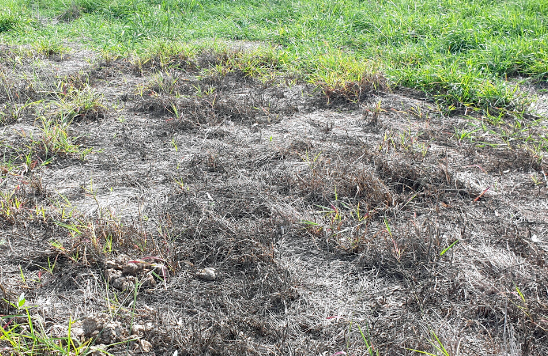
NSW Department of Primary Industries (DPI) has urged producers and contractors to adopt thorough biosecurity practices to help limit the spread of pasture dieback, which has been identified for the first time in NSW on the North Coast.
NSW DPI pasture development officer, Sarah Baker, said producers can prevent entry, establishment and spread via their front gate under a ‘Come clean, go clean’ regime.
“Producers should keep good records and ensure all staff and visitors are instructed to follow their business management hygiene requirements,” Ms Baker said.
“Regular monitoring of grass pastures and crops and being on the lookout for any changes is important, as there have been additional reports of pasture dieback in northern NSW.
“Mealybug infestations have also been reported and researchers are exploring an association between the two.
“However, we believe the cause of dieback is more complex than the relationship with pasture mealybug alone.”
Both pasture dieback and mealybug infestations threaten agricultural productivity.
Ms Baker said dieback affected pasture should not be baled or sold and advised producers to regularly check areas where hay and fodder have been stored and fed out for dieback symptoms.
“If you purchase grass hay from Queensland, where dieback-has affected large areas of pasture, ensure hay is from a reputable source,” she said.
Pasture dieback kills sown and native summer growing grasses, which first turn yellow and red, become unthrifty and eventually die.








